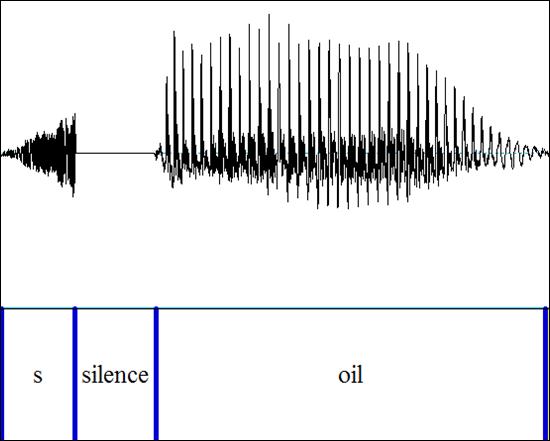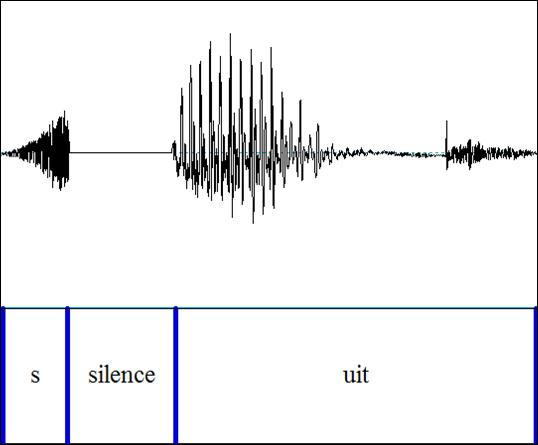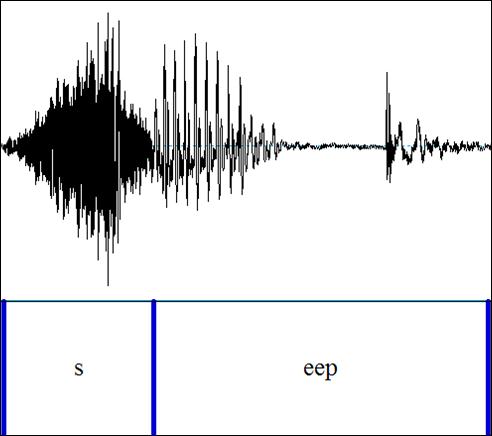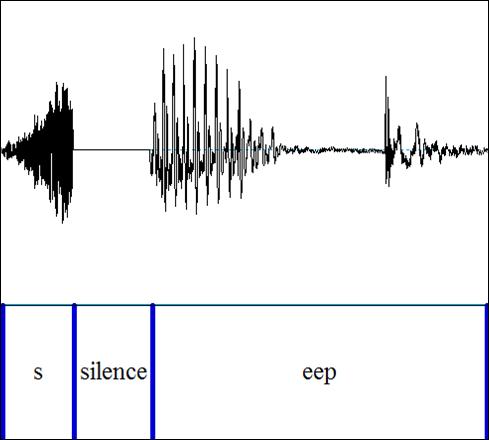





Exercise 7.1
The examples below are pairs of words where the one on the left is unspliced and the one on the right has had the end of the /s/ replaced by silence. This is a crude manipulation but should be enough to lead to the perception of some sort of voiceless stop. The question is whether the stop sounds like a different one for each of these words. Listen to the words on the right and see what you think. Or better still, ask a 'naive' listener (i.e. someone who does not know the background to this the way that you do) to listen to each of the words on the right and to answer the question "what word do you think this is?"
 |
 |
file loads here
|
file loads here
|
 |
 |
file loads here
|
file loads here
|
 |
 |
file loads here
|
file loads here
|
Your responses may not agree entirely with the following, and will depend on the extent to which you have been able to listen 'naively', but it is likely that you will hear soil with a silence spliced at the end of the /s/ as spoil, suit as scoot and seep as steep. This is because of our lexical bias, i.e. because we prefer to hear things as real words rather than nonwords. If we heard a /t/ or /k/ in the soil example we would be hearing the nonwords stoil or skoil. If we heard a /p/ or /t/ in the suit example we would get the nonwords spoot or stoot. If we heard a /p/ or /k/ in the seep example it would give us the nonwords speep or skeep.